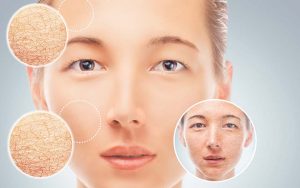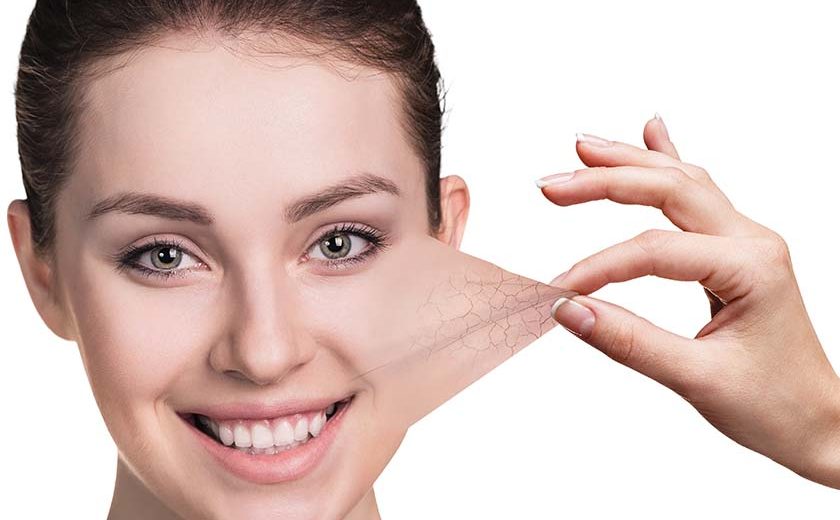We all have dry patches in our skin, especially when the season is dry and cold. We tend to not pay that much attention to this problem.
However, dry skin patches on our face ruin your complexion. Without makeup, dry patches tend to be invisible. When makeup is applied, you’ll easily notice the areas that tend to be drier than some. These dry patches can cause your makeup to look uneven and even flake off.
Dry skin is a problem that can affect us from our scalp to the soles of our feet. When you start to notice some unusual, funny patches in the facial region, then something may be up with your skin and health. Are you starting to notice a dry and flaky area near your eyebrows? Is your nose starting to peel and look inflamed? Some top dermatologist have explained the occurrences of these dry patches on the skin and what step you can do to avoid or fix them. Read on below to know more.
Dry Skin around Eyes and Eyebrows
The skin around the eyes is sensitive and is prone to dry skin. This area can suffer from dry skin if it is constantly rubbed aggressively. If you’re someone that has a habit of rubbing their eyes when they feel tired, then this can be the cause of your dry skin. You can reduce the dryness by simply pressing your palms in your eyes to help you feel more awake. Other causes of dry skin in these areas are cosmetic irritation, seborrhea and allergies. If your eyes and eyebrows tend to get itchy just a few hours of using your makeup, then replace it with a hypoallergenic version. It’s important to keep off makeup for a while so your skin would heal and regain back all of the lost moisture from the irritation.
If it can’t be helped, purchase a makeup that has a moisturising quality. Other products that can cause allergies to these areas are strong hair products and perfume. Seborrhea is a skin condition that is often mistaken for dry skin. Flaking and redness are often the symptom of these conditions. You can go to your dermatologist when the symptoms don’t go away after a week.

Dry Skin around Nose
Our nose tends to be oily most of the time due to the production of sebum, but it doesn’t save it from dry skin. When you start to experience flaky and peeling skin on your nose remember three questions. Is the weather cold? Is there dry heat? Have you been using a harsh soap as a facial wash? When there is low humidity level in the skin is more prone to drying, some of us experience peeling of the skin during these weathers. You can reduce the effect by using a humidifier at night or anywhere you are required to stay indoors for a long period of time. Harsh soaps are meant to remove any grime, oil and dirt on the skin. Using this on your face will cause you to wash away the natural sebum on your skin causing dryness and peeling. Simply pick a cleanser that is gentle on the skin and contain moisturising properties.
Dry Skin around Cheeks
The cheeks are prone to dryness since it is one of the widest areas in the face and experiences most environmental factors. A few flakes is not something to worry about, but when you start to experience excessive shedding in your cheeks then check your routine. Are you constantly exposed to the sun? Is your commute causing you to experience windburn? Anything that exposes your skin to excessive heat, cold and dryness can cause your cheeks to flake off and become reddish. It’s important to moisturise your skin every day as soon as this occurs and make sure to use a sunblock every 6 hours to protect your skin. Using a hydrating misting spray can also help reduce the shedding. Using liquid based makeup can reduce the appearance of dry and flaky skin.
Dry Skin around Mouth
Dry skin around the mouth can be caused by dehydration, licking of the lips and lip plumpers. Your lips are one of the few areas that exhibits dry skin when the body is dehydrated. This is a huge sign that your body is telling you to drink more water. Licking of the lips can cause dry skin due to the saliva’s ability to reduce moisture. You can replace your lip licking habit by using a flavourless chap stick or petroleum jelly. Lip plumpers can cause a lot of irritation on the skin, it’s best to avoid them when you are sensitive to irritation.


